
The organized environmental movement is represented by a wide range of non-governmental organizations or NGOs that seek to address environmental issues in the United States. They operate on local, national, and international scales. Environmental NGOs vary widely in political views and in the ways they seek to influence the environmental policy of the United States and other governments.
Environmental skepticism is the belief that statements by environmentalists, and the environmental scientists who support them, are false or exaggerated. The term is also applied to those who are critical of environmentalism in general. It can additionally be defined as doubt about the authenticity or severity of environmental degradation. Environmental skepticism is closely linked with anti-environmentalism and climate change denial. Environmental skepticism can also be the result of cultural and lived experiences.
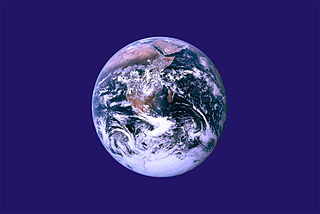
Earth Day is an annual event on April 22 to demonstrate support for environmental protection. First held on April 22, 1970, it now includes a wide range of events coordinated globally by EARTHDAY.ORG including 1 billion people in more than 193 countries. The official theme for 2023 is Invest In Our Planet.

The Gandhi Peace Award is an award and cash prize presented annually since 1960 by Promoting Enduring Peace to individuals for "contributions made in the promotion of international peace and good will." It is named in honor of Mohandas Karamchand Gandhi but has no personal connection to Mohandas Gandhi or any member of his family.

William Ernest McKibben is an American environmentalist, author, and journalist who has written extensively on the impact of global warming. He is the Schumann Distinguished Scholar at Middlebury College and leader of the climate campaign group 350.org. He has authored a dozen books about the environment, including his first, The End of Nature (1989), about climate change, and Falter: Has the Human Game Begun to Play Itself Out? (2019), about the state of the environmental challenges facing humanity and future prospects.

The Hype About Hydrogen: Fact and Fiction in the Race to Save the Climate is a book by Joseph J. Romm, published in 2004 by Island Press and updated in 2005. The book has been translated into German as Der Wasserstoff-Boom. Romm is an expert on clean energy, advanced vehicles, energy security, and greenhouse gas mitigation.
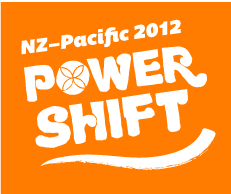
Power Shift is an annual youth summit which has been held in New Zealand, Australia, Canada, the United Kingdom and the United States. Other Power Shift Conferences are also being organised by members of the International Youth Climate Movement including Africa, Japan and India. The focus of the events is on climate change policy.

Joseph J. Romm is an American researcher, author, editor, physicist and climate expert, who advocates reducing greenhouse gas emissions to limit global warming and increasing energy security through energy efficiency and green energy technologies. Romm is a Fellow of the American Association for the Advancement of Science. In 2009, Rolling Stone magazine named Romm to its list of "100 People Who Are Changing America", and Time magazine named him one of its "Heroes of the Environment (2009)", calling him "The Web's most influential climate-change blogger".
Christian views on environmentalism vary among different Christians and Christian denominations.

The 11th Hour is a 2007 documentary film on the state of the natural environment created, produced, co-written and narrated by Leonardo DiCaprio. It was directed by Leila Conners Petersen and Nadia Conners and financed by Adam Lewis and Pierre André Senizergues, and distributed by Warner Independent Pictures.
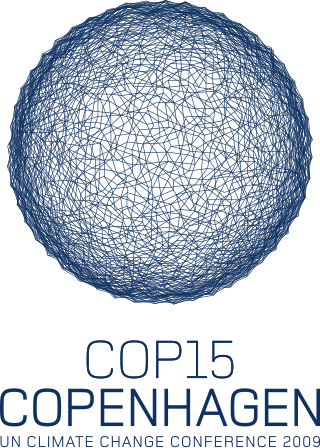
The 2009 United Nations Climate Change Conference, commonly known as the Copenhagen Summit, was held at the Bella Center in Copenhagen, Denmark, between 7 and 18 December. The conference included the 15th session of the Conference of the Parties to the United Nations Framework Convention on Climate Change (UNFCCC) and the 5th session of the Conference of the Parties serving as the meeting of the Parties to the Kyoto Protocol. According to the Bali Road Map, a framework for climate change mitigation beyond 2012 was to be agreed there.
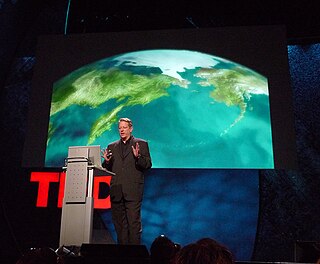
Al Gore is an American politician and environmentalist. He was vice president of the United States from 1993 to 2001, the Democratic Party's presidential nominee in 2000, and the co-recipient of the 2007 Nobel Peace Prize with the Intergovernmental Panel on Climate Change. He has been involved with the environmental activist movement for a number of decades and has had full participation since he left the vice-presidency in 2001.
Lawrence Solomon is a Canadian writer on the environment and the executive director of Energy Probe, a Canadian non-governmental environmental policy organization, and a member of the advisory board of the far-right Rebel News. His writing has appeared in a number of newspapers, including The National Post where he has a column, and he is the author of several books on energy resources, urban sprawl, and global warming, among them The Conserver Solution (1978), Energy Shock (1980), Toronto Sprawls: A History (2007), and The Deniers (2008).

Philip David Radford is an American activist who served as the executive director of Greenpeace USA. He is the founder and President of Progressive Power Lab, an organization that incubates companies and non-profits that build capacity for progressive organizations, including a donor advisory organization Champion.us, the Progressive Multiplier Fund and Membership Drive. Radford is a co-founder of the Democracy Initiative, was founder and executive director of Power Shift, and is a board member of the Mertz Gilmore Foundation. He has a background in grassroots organizing, corporate social responsibility, climate change, and clean energy.

350.org is an international environmental organization addressing the climate crisis. Its stated goal is to end the use of fossil fuels and transition to renewable energy by building a global, grassroots movement.
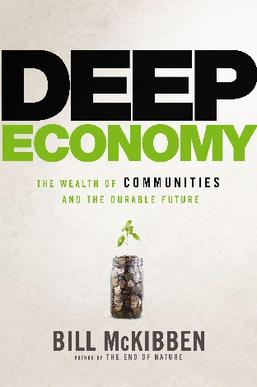
Deep Economy: The Wealth of Communities and the Durable Future is a non-fiction work by environmentalist Bill McKibben published in the field of ecological economics in 2007. The work promoted sustainable economy in close-knit communities. These include regions that generate their own food, their own energy, their own culture, and their own entertainment. McKibben defined a "deep economy" as one that "cares less about quantity than about quality; that takes as its goal the production of human satisfaction as much as surplus material; that is focused on the idea that it might endure and considers durability at least as important as increases in size." The book has been generally well-received, though some critics have questioned his proposed solutions.
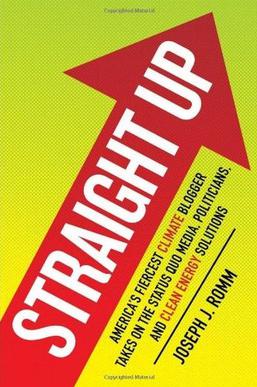
Straight Up: America's Fiercest Climate Blogger Takes on the Status Quo Media, Politicians, and Clean Energy Solutions is a book by author, blogger, physicist and climate expert Joseph J. Romm. A Fellow of the American Association for the Advancement of Science and former Acting Assistant Secretary of the U.S. Department of Energy, Romm writes about methods of reducing global warming and increasing energy security through energy efficiency, green energy technologies and green transportation technologies.

The People's Climate March (PCM) was a large-scale activist event orchestrated by the People's Climate Movement to advocate global action against climate change, which took place on Sunday, September 21, 2014, in New York City, along with a series of companion actions worldwide, many of which also took the name People's Climate March. With an estimated 311,000 participants, the New York event was the largest climate change march in history. Described as "an invitation to change everything," the march was called in May 2014 by the global advocacy human rights group Avaaz and 350.org, the environmental organization founded by writer/activist Bill McKibben, and it was endorsed by "over 1,500 organizations, including many international and national unions, churches, schools and community and environmental justice organizations." It was conceived as a response to the scheduled U.N. Climate Summit of world leaders to take place in New York City two days later, on September 23.

Climate change art is art inspired by climate change and global warming, generally intended to overcome humans' hardwired tendency to value personal experience over data and to disengage from data-based representations by making the data "vivid and accessible". One of the goal of climate change art is to "raise awareness of the crisis", as well as engage viewers politically and environmentally.
Soft climate change denial is a state of mind acknowledging the existence of global warming in the abstract while remaining, to some extent, in partial psychological or intellectual denialism about its reality or impact. It is contrasted with conventional "hard" climate change denial, which refers to explicit disavowal of the consensus on global warming's existence, causes, or effects.
















